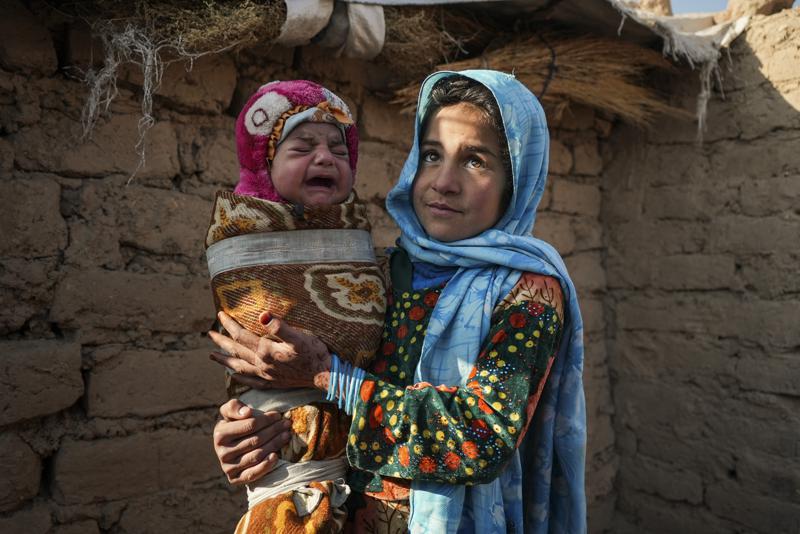

In a sprawling settlement of mud brick huts in western Afghanistan housing people displaced by drought and war, a woman is fighting to save her daughter.
Aziz Gul’s husband sold the 10-year-old girl into marriage without telling his wife, taking a down-payment so he could feed his family of five children. Without that money, he told her, they would all starve. He had to sacrifice one to save the rest.
Many of Afghanistan’s growing number of destitute people are making desperate decisions such as these as their nation spirals into a vortex of poverty.
The aid-dependent country’s economy was already teetering when the Taliban seized power in mid-August amid a chaotic withdrawal of U.S. and NATO troops. The international community froze Afghanistan’s assets abroad and halted all funding, unwilling to work with a Taliban government given its reputation for brutality during its previous rule 20 years ago.
The consequences have been devastating for a country battered by four decades of war, a punishing drought and the coronavirus pandemic. Legions of state employees, including doctors, haven’t been paid in months. Malnutrition and poverty stalk the most vulnerable, and aid groups say more than half the population faces acute food shortages.